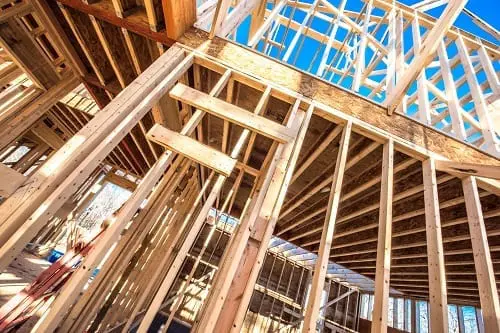Real Estate Term Demystified

Home shoppers may have heard realtors use the phrase “BOYL,” or maybe you’ve seen it on builders’ websites. BOYL is a common acronym in the real estate industry that stands for “Build on Your Own Lot.” Unlike traditional site-built homes, home shoppers that use the BOYL option first purchase land separately from a builder community or developer, then build a new home on that land.
5 FAQs about BOYL
Yes! Many production home builders offer BOYL options, so you don’t have to hire an architect to draw up a custom floorplan from scratch.
When you find a plan you love, survey your land and make sure you can legally and feasibly built that plan on that piece of land before you sign any documents or make any commitments. Ask your desired builder if they handle the land surveillance and inspection process.
Yes and No. Most of the time, a custom home is technically the same thing as the BOYL option, a site built home on the homeowner’s own land. Typically, though, the term BOYL refers to services offered by a production builder, where they build from their floorplan library, on a lot not in one of their master planned communities or builder developments.
No. Buying a manufactured or modular home is not the same thing as the BOYL option because the house is built on an assembly line, not on-site. Manufactured and modular homes are also placed on leased land, not homeowner owned.
Not necessarily. Some builders will help home shoppers find and buy the perfect lot for their desired new home.
Not necessarily. Depending on the cost of land, how many upgrades you want to include in the home, and the desirability of the location of a builder’s communities, building a new home on a privately held lot can cost less than building a production home in local housing development.
Ready to start connecting with custom homebuilders? Click here.
When the BOYL Option is Right for You
You might want to see if local builders offer BOYL options if:
- You already own land where you want to build a house.
- You want to build a new construction home, but don’t want to live in a master planned community or builder community
- You really like a certain builder’s floorplans, but don’t want to or can’t live in any of their communities.
Want to learn more about building a new home on your own lot? Read this: How to Build Your Own Home on Your Own Lot

After graduating in 2016 from The University of Texas with a degree in English, Sanda Brown became a content writer for the BDX with a focus on website copy and content marketing.
At the BDX, Sanda helps write and edit articles on NewHomeSource.com, writes website copy for builders, and manages a team of freelancers that work on additional content needs.
 How to Build the Custom Home of Your Dreams
How to Build the Custom Home of Your Dreams